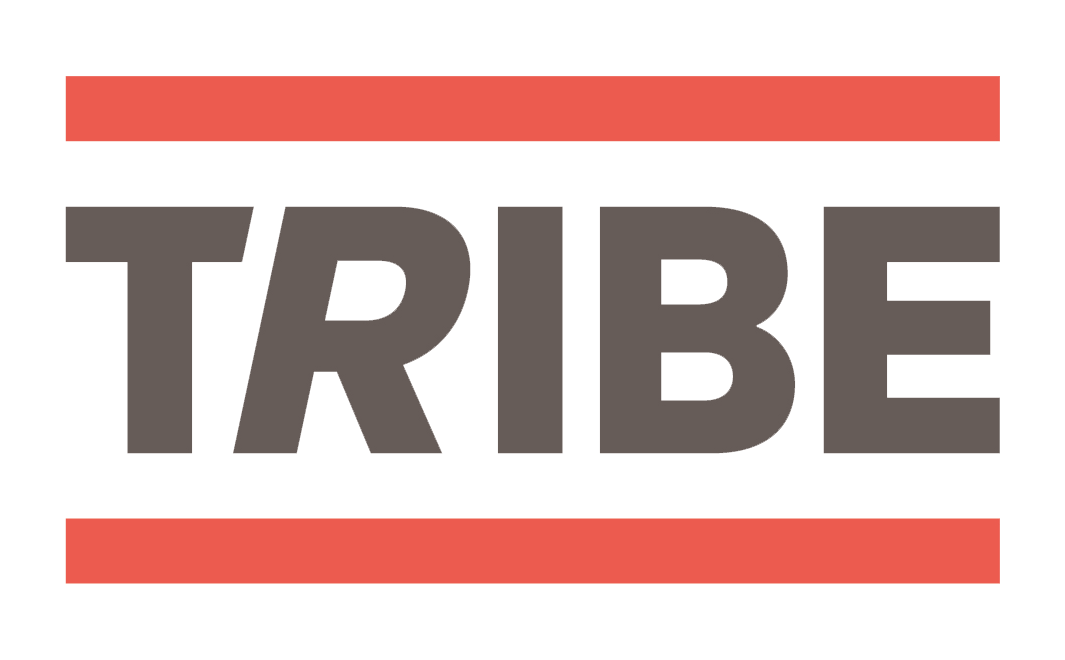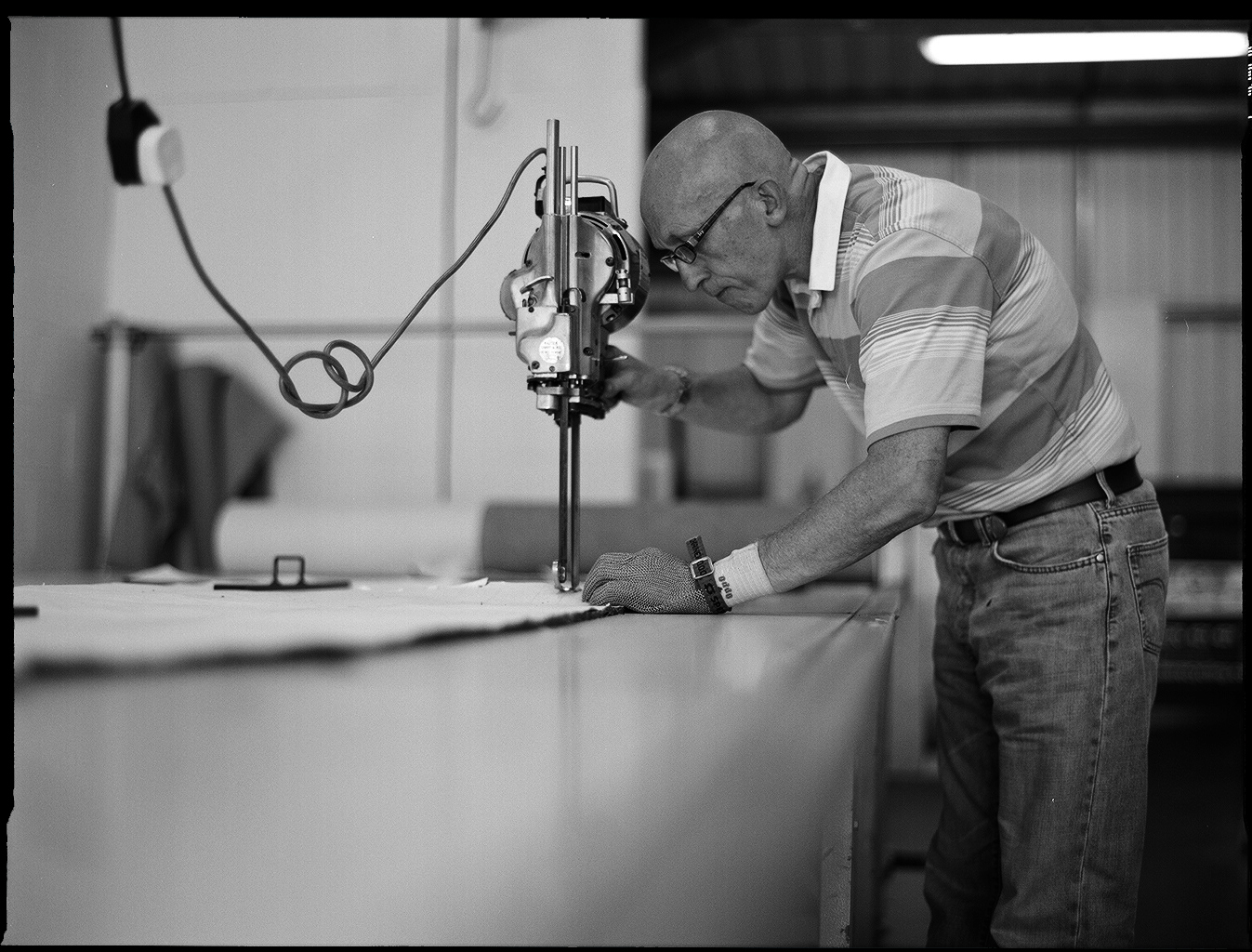Over the past 12 months, we have been consulting with 20,000 members of the TRIBE community to define our Mission & Values. We are excited to launch a book, which introduces our new Mission and Values and features inspiring people, including David Hieatt of Hiut Denim and Paul Forkan of Gandys, whose vision has inspired TRIBE. We would like to share the stories of brands that have inspired our Mission and Values.
David Hieatt is the founder of Hiut denim, a jeans company based in Cardigan, West Wales, and is the founder of the Do-lecture series which has been seen by over 5 million people. He is a fierce advocate of business as a force for good. He lives in Cardigan with his family.
How did your journey begin?
At 16 I was bankrupt. I tried to start a sports brand. I had a bedroom covered in posters of Adidas, Nikey, Levis, Wranglers, I was just so into it all. So I quit my A-levels, for some reason my parents thought that would be a good idea, and within six months I had gone out of business. My dad said, well… what did you learn? I said, well I learnt that I really love this thing. And he said… well, the next piece of learning will have to be how to be good at it.
After working in advertising for almost a decade, I started a jean company called Howies. We built it from nothing to quite a reasonable sized business in a short period of time. We were growing at 350% a year for three years, and it reached the point where we needed to get money and expertise.
We ended up selling to Timberland, because they were on a path to be the greenest company they could be, and understood the importance of us remaining at our home in Cardigan in the Welsh valleys. Unfortunately, within twelve months a lot of those things were in essence just talk, so we ended up leaving Howies.
How did you feel in the aftermath of this?
I was angry. I wasn’t angry at anybody else, I was angry at myself. Because we’d only half completed the mission. Half-completing the mission isn’t really satisfactory. If you sell something you love, it’ll make you angry. It might make you some money. But if you haven’t completed the mission, you should keep going. I had a year where I couldn’t do anything that I knew anything about. I went running a lot, my dog and I got pretty fit. I would run up the mountain, literally screaming my head off.
What makes Wales such an important place for you?
Where I was brought up, in the Rhymney valleys, it was a coalmining place. Every day on the way to school, I’d see the coalminers on my left, and at 3.30pm leaving school they’d be on my right, with their blackened faces and luchboxes. And then one day that community disappeared. There were no coal mines. And I saw how that big industry went away, and the community fell apart. In some respects that’s what happened to Cardigan, 400 people were making jeans for 40 years, and then one day their biggest employer went away, and they had a decade of tough times, shops closing, pubs closing, it was the equivalent of a million pounds going out of their economy every week.
So what was the moment you decided to set up a new jeans company?
I had a phone call with an exdesigner, and he said ‘so what’s happening with the mission (to build a new jeans business)’, and I said I wasn’t sure if I wanted to run around the same track twice. And he said Dave, it’s not about you. It’s about a town. It’s about a town that’s going to lose all its skills if you don’t do something. And we all need quests that are bigger than ourselves. So I started Hiut jeans.

What is your mission for Hiut?
In its simplified form, can we get 400 people their jobs back? And get the town thriving again. The engine of the town was the factory, so we’re fighting for their right to make, and fighting for these skills not to be lost. We want to put Cardigan back on the map. So far we’ve got 25 people their jobs back, and we haven’t even got started yet. And we have beautiful powerful amazing thing called the Internet, so we’re in the right town at the right moment in history, with the right people with the right skills. Maybe we’ll only get 30 people their jobs back, hey I’ll be happy with that. But the ultimate mission is all 400.
How does the why versus the what argument play out in your head on a day to day basis?
Patagonia is a benchmark for us. They use their business to make change in the world that they want to see. That has always been the benchmark for me, how do you use your business to make the change you desperately want to see in this world. That’s why I love seeing purpose-driven businesses. Because they have the edge. They have crazy entrepreneurs who have something inside them, that they have to make happen. Like you guys at Tribe. It’s not just selling a bar for energy. It’s making sure you’re looking after them. Giving them the best answer that their body needs, not just some more sugar. For me, it’s about using business to make the change you want.

Does running help your creativity?
I’ve always run. It does something that I don’t truly understand. If I have a big problem, by the time I take my trainers off, it’s a mole-hill. And if I can’t solve something, it relaxes my body and my mind in such a way that I suddenly have these moments where I’m like ah that’s the answer. So yes, I run to work up a sweat and to keep fit, but I also run… towards answers. The rhythm of running has a great beauty to it, after twenty minutes your body is no longer fighting it, and you enter that zone where answers seem to come. It’s done it repeatedly for me.
Is nature a big thing for you?
Nature does something to your body and your mind, that no-one really knows. It’s very good for your mental health, but it’s also hearing the quiet. When I have the time I’ll go up to the mountain, and I’ve realised it’s good to feel small. Nature does that. You think you’re so smart, and then you realise that river over there is going to flow long after I’m gone, that tree will still be standing, all of this will survive me. Nature gives you great context. Go and climb a mountain, and realise how small you are.
One of our values is Be Bold. Would that be advice you’d give someone?
Nelson Mandela once said, don’t play small. You have to be brave with your ideas. You have to be willing to be judged, to not give a fuck about what other people think. Because you’re not going to do the best work you’ve ever done by getting everyone else’s approval. The only way to reach your potential is by taking risks. There’s a funny concept I call the term of ‘being loose’. You have to try your hardest whilst being your most relaxed. When you try your hardest and are the most uptight, you don’t do your best work. You have to care the most and care the least simultaneously, for me that is the space in which truly great work is done. Look, people are always going to criticise you, but you have to be able to answer to yourself, to go look, did I give it my best shot.

